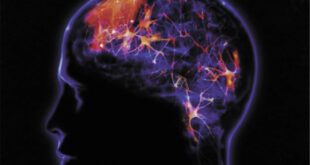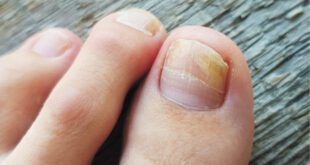April marks Testicular Cancer Awareness Month, an important time to focus on a disease that primarily affects young men but remains highly treatable when caught early. Despite being relatively rare, testicular cancer is the most common cancer in males aged 15-35. With early detection playing a crucial role in successful outcomes, understanding when to consult a urologist is essential for all men.
What is Testicular Cancer?
Testicular cancer develops in the testicles, the male reproductive glands that produce testosterone and sperm. It typically begins when normal cells in a testicle change and grow uncontrollably, forming a mass or tumor. While testicular cancer can occur in one or both testicles, it most commonly affects
just one.
Most testicular cancers start in the germ cells, which are responsible for producing sperm. The two main types are seminomas, which tend to grow slowly, and non-seminomas, which typically grow more rapidly and may spread to other parts of the body if not treated promptly.
Risk Factors
Several factors may increase a man’s risk of developing testicular cancer:
. Age: Most commonly diagnosed in men between 15 and 35 years old
. Cryptorchidism: A history of undescended testicle(s)
. Family history: Having a close relative who has had testicular cancer
. Personal history: Previous testicular cancer in one testicle increases the risk in the other
. Race and ethnicity: More common in white men than in Black, Hispanic, or Asian men
When to See Your Urologist
Consulting a urologist promptly is crucial for several important reasons:
1. Early diagnosis dramatically improves outcomes. When detected early, testicular cancer has a survival rate of over 95%. A urologist has specialized training to properly evaluate any testicular abnormalities.
2. Urologists can differentiate between cancer and non-cancerous conditions. Many symptoms of testicular cancer can mimic other conditions like epididymitis, hydrocele, or varicocele. Only a specialist can make the proper distinction.
3. Delayed diagnosis can lead to more aggressive treatment. When testicular cancer spreads beyond the testicle, treatment becomes more complex and may involve radiation, extensive chemotherapy, or additional surgeries.
4. Urologists provide comprehensive care. From initial diagnosis through treatment and follow-up, urologists coordinate the multidisciplinary care needed for testicular cancer patients.
5. Fertility preservation discussion. A urologist can discuss fertility preservation options before treatment begins, which is especially important for young men.
You should see a urologist immediately if you experience:
. Any lump or swelling in a testicle, even if painless
. A change in how a testicle feels or a sensation of heaviness
. Dull ache in the lower abdomen or groin
. Pain or discomfort in a testicle or scrotum
. Enlargement or tenderness of the breasts
. Sudden accumulation of fluid in the scrotum
Don’t delay seeking care. Many men postpone seeing a urologist due to embarrassment or fear, but urologists are specialists who routinely examine these issues with professionalism.
Screening and Self-Examinations
Unlike some other cancers, there are no standard screening tests for testicular cancer. However, regular self-examinations are recommended. The best time to perform a testicular self-exam is after a warm shower when the scrotum is relaxed.
To perform a self-exam:
1. Hold each testicle between your thumbs and fingers of both hands and roll it gently
2. Look and feel for any hard lumps, smooth rounded bumps, or changes in size, shape, or consistency
Men should become familiar with the normal size and feel of their testicles so they can notice any changes. However, self-exams should never replace professional evaluation by a urologist.
Treatment Options
The good news about testicular cancer is that it’s highly treatable, even when it has spread beyond the testicle. Treatment depends on the type and stage of cancer and may include:
. Surgery to remove the affected testicle (radical inguinal orchiectomy)
. Radiation therapy, particularly for seminomas
. Chemotherapy, especially for more advanced cases
. Surveillance after surgery for early-stage cancers
. Stem cell transplant for certain advanced cases
Life After Diagnosis
A testicular cancer diagnosis can raise concerns about fertility and sexual function. Many men can still father children after treatment, though some treatments may affect fertility. Sperm banking before treatment is an option that your urologist can discuss with you.
Most men maintain normal sexual function after treatment, though it may take time to adjust emotionally to changes in body image after surgery. Urologists can address these concerns and offer appropriate referrals when needed.
Raising Awareness
Testicular Cancer Awareness Month serves as a reminder of the importance of education, early detection, and seeking prompt medical attention from a urologist for any concerning symptoms. By increasing awareness and encouraging open discussions about testicular health, we can help ensure more men receive timely diagnosis and treatment.
For young men especially, knowing when to see a urologist isn’t just important health information—it could be lifesaving knowledge.
352-775-6899
www.lakesumterurology.com
808 Highway 466, Lady Lake, FL 32159
 Central Florida Health and Wellness Magazine Health and Wellness Articles of the Villages
Central Florida Health and Wellness Magazine Health and Wellness Articles of the Villages



